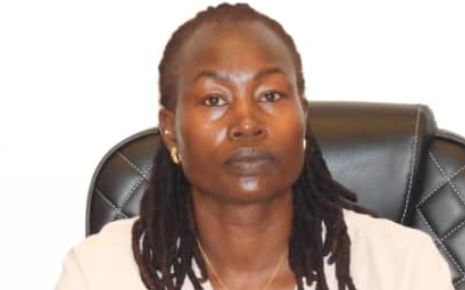The national health minister has expressed concern over the country’s lack of capacity to detect cancer cases early, saying it has led to patients suffering and dying in silence.
Yolanda Awel Deng stressed that South Sudan currently lacks specialized units or centers dedicated to the detection and treatment of cancer, making it difficult to manage cancer cases effectively.
Cancer comprises a range of diseases characterized by abnormal cell growth that can invade or spread to other parts of the body, in contrast to benign tumors, which do not metastasize.
Possible signs and symptoms include a lump, abnormal bleeding, prolonged cough, unexplained weight loss, and a change in bowel movements. While these symptoms may indicate cancer, they can also have other causes. Over 100 types of cancers affect humans.
Minister Awel however said South Sudan’s referral centers only provide screening to people suspected of cancer-like symptoms and when found positive, patients are sent to the neighboring countries for treatment.
“Cancer, as a whole, has become very much prevalent in our country because of so many reasons. We have seen a lot of cases of cancer in our country. We do not have a proper way of actually detecting cancer early and treating it,” she explained. “However, the ministry of health, through the referral health institutions like Juba Teaching Hospital, has screening, and also when women go to primary health care centers, our health care personnel are very well equipped to try and help women screen themselves.”
“The problem is that when we screen and detect that you have got cancer or detect something that we think is cancer, we do not have a proper unit to be able to treat it and we send these people outside the country,” Minister Awel added.
She acknowledged that so many lives are being lost to cancer mainly because the country cannot handle or detect the disease at an early stage. The minister however acknowledged that she could not provide data on cancer cases and resultant deaths.
“Many women have died of cancer, both cervical and breast cancer, and you can also see it in men, you know cancer is related or can affect the liver and everything else,” Awel stated. “People are dying in silently.”
On 20 October, a 40-year-old woman who had been diagnosed with cancer at the MSF Bentiu IDP Camp Hospital the day before committed suicide by hanging in Sector 4, Block 9 of the Bentiu IDP Camp in Unity State.
Breast Cancer Awareness Month has been celebrated in October since the eighties. It is called “Pink October” as people around the world adopt the pink color and display a pink ribbon to raise awareness about the importance of prevention and routine screening for the early diagnosis of breast cancer, now the second most commonly diagnosed cancer globally.




